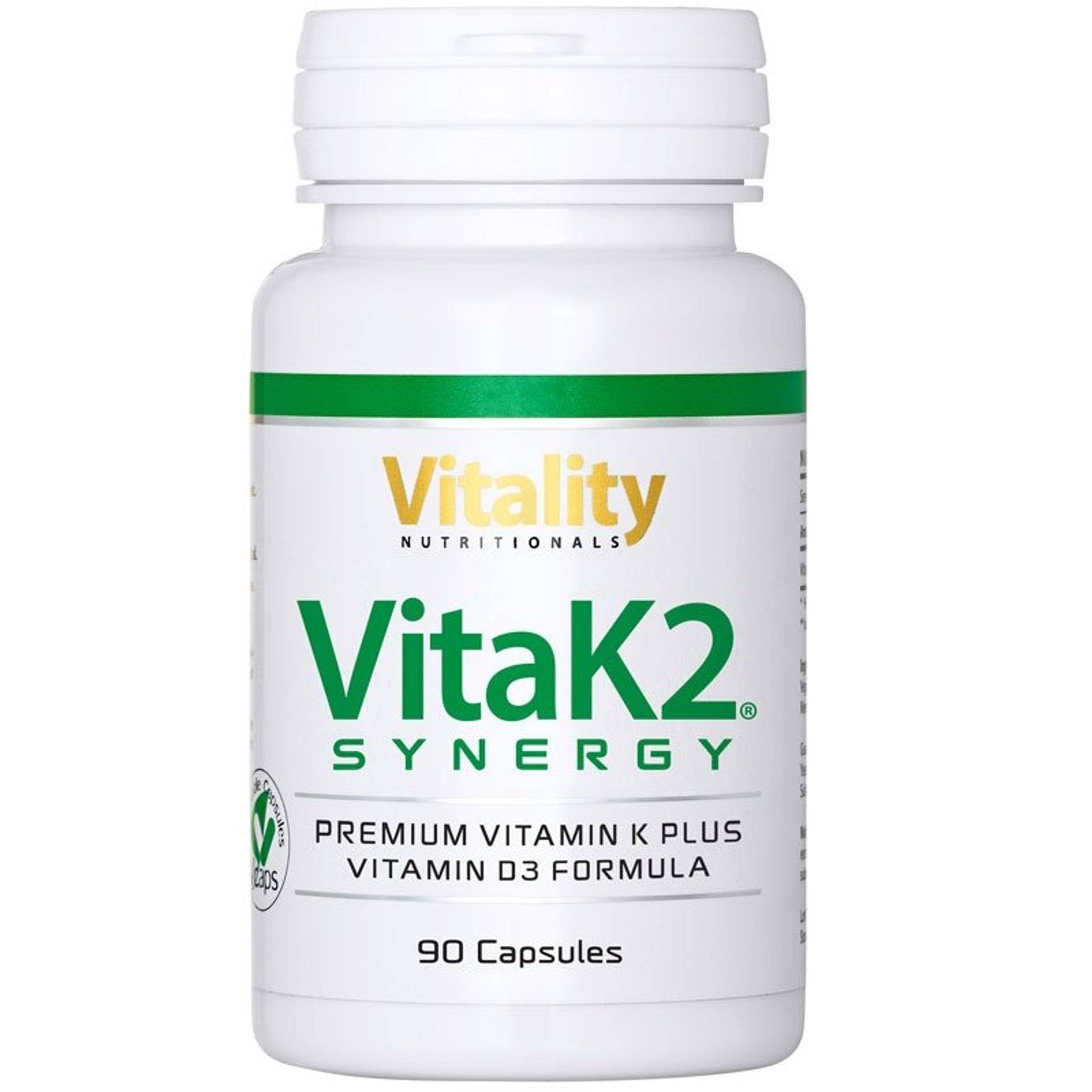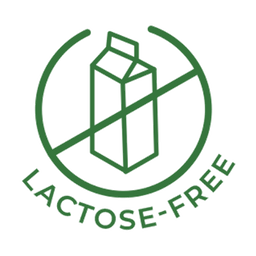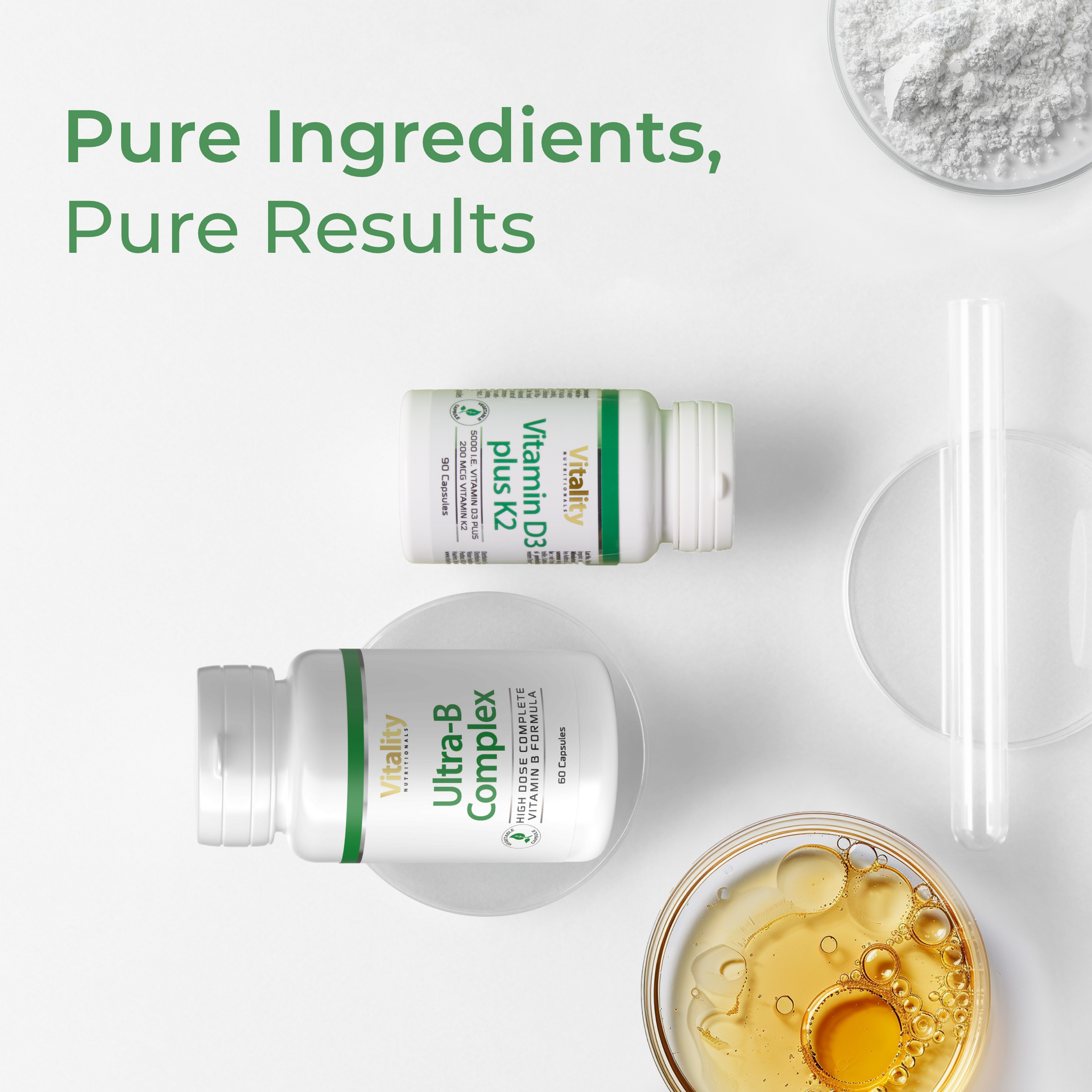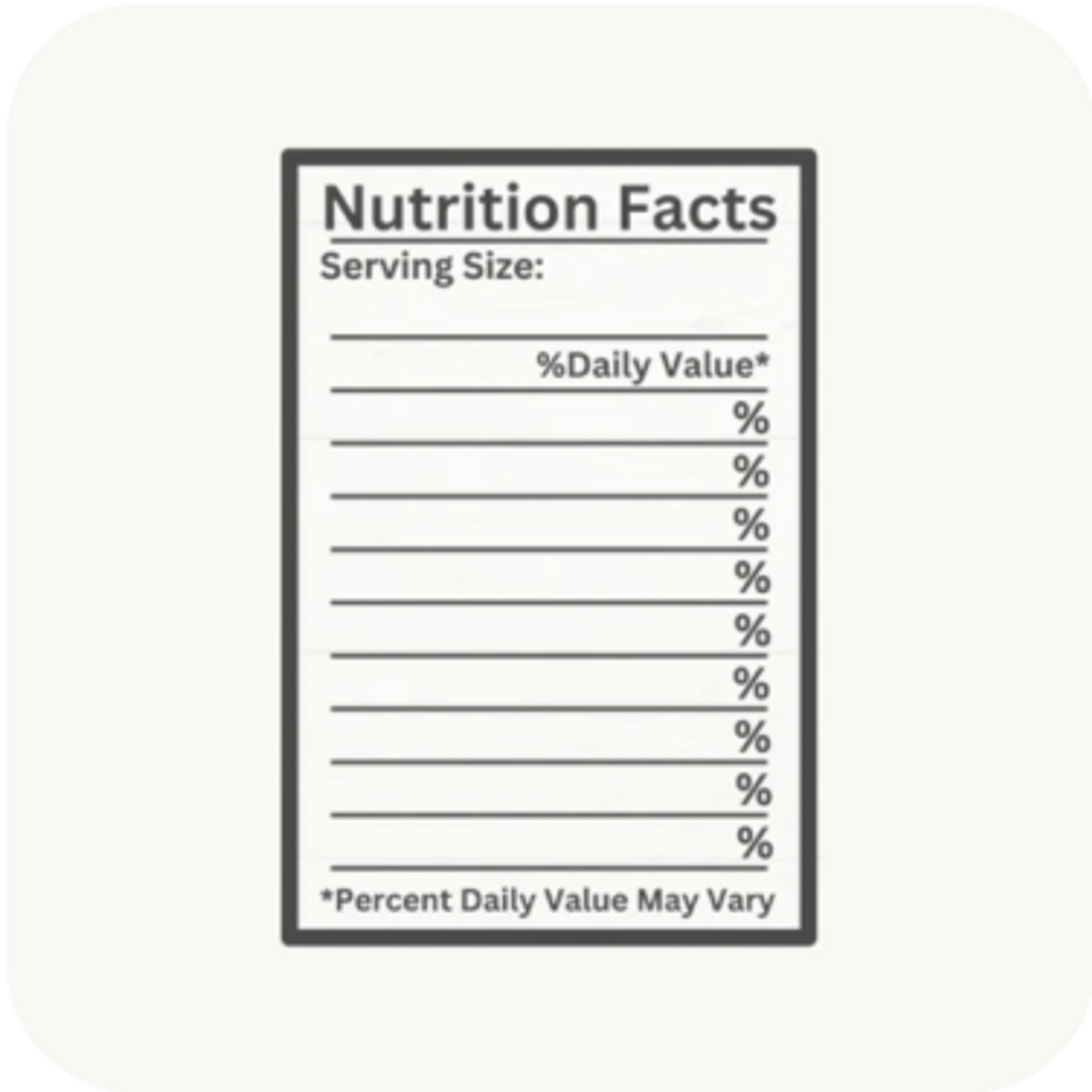
90 capsules




Free shipping above 49 Euro
Delivery within 2-4 working days
100 Day Money Back Guarantee
Vitamin K2 Synergy supplies high doses of Vitamin K2, Vitamin K1 and is optimized with Vitamin D3. These two vitamins work synergistically together to strengthen the bones and to protect the arteries against calcification.
Imagine a vitamin that could keep calcium in your bones and out of your arteries. In doing so, that vitamin could stop heart attack and osteoporosis at the same time.
Sounds incredible? Maybe, but research shows that vitamin K2 does exactly that. It works by regulating calcium. Bones need it, arteries can't stand it. Vitamin K accommodates both.
Osteoporosis and heart disease - they seem as unconnected as two conditions can possibly be. On the surface, they do share a few common features. Both conditions develop with age.
It's rare for someone to have either condition at age 30, but both are common in the sixth or seventh decade of life. Both conditions don't develop overnight, but require many years to emerge.
Just as osteoporosis requires decades to develop, coronary atherosclerosis also accumulates bit by bit over decades, starting in a persons 20s (or earlier) and building gradually until a heart attack or other catastrophe occurs.
But the resemblance appears to stop there - that is, until we dig beneath the surface.
Vitamin K is not just one vitamin, but a whole group of fat soluble vitamins that are essential for the body to utilize calcium for healthy bones, and healthy arteries. Vitamin K is also needed by the liver to effectively clot our blood. Hence, this group of vitamins is essential for life.
The function of Vitamin K is unique among other vitamins. It activates clotting factors, osteocalcin and MGP-proteins that are made in different organs in the body: Clotting factors in the liver, osteocalcin in bones and MGP in the vasculature. These proteins help coagulate blood, bind calcium to the surface of bones and 'clean-up' calcium deposits stored in the arteries.
Recent research has revealed that, without vitamin K2, calcium regulation is disrupted. In fact, low levels of vitamin K2 are associated with an increased risk of heart disease and atherosclerosis.
Astute doctors have long known that people with a lack of calcium in their bones are more likely to possess an excess of calcium in their arteries, and vice versa. The resulting lack of calcium in bone leads to osteoporosis, while the deposition of calcium in the arterial wall leads to coronary heart disease and other manifestations of cardiovascular, renal, and neurodegenerative disease.
Vitamin K works through an amino acid called 'GLA,' which stands for gamma-carboxyglutamic acid.
GLA is part of a certain kind of protein that controls calcium. Fifteen such proteins have been found so far; and researchers believe there are at least one hundred scattered throughout the body. Vitamin K makes them work and it's the only vitamin that does.
Vitamin K performs a feat on the proteins called 'carboxylation.' Carboxylation gives the proteins claws so they can hold onto calcium. Once the protein grabs onto calcium it can be moved around. Proteins that don't get enough vitamin K don't have the claws. They're 'undercarboxylated' and can't control the mineral.
Without a functioning protein to control it, calcium drifts out of bone and into arteries and other soft tissue.
The most famous GLA protein is 'Osteocalcin.' You may have heard of osteocalcin in connection with bone density. What you might not have heard is that it requires vitamin K to work.
Undercarboxylated osteocalcin (Osteocalcin without vitamin K) can't regulate calcium. When this happens, calcium leaves bone and teeth. Women with 'undercarboxylated osteocalcin' excrete calcium, and their bones are porous. Vitamin K reverses this trend.
Vitamin K controls calcium-regulating proteins that are present in vascular tissue. These vitamin K-dependent proteins (including osteocalcin and matrix GLA protein) have been shown to specifically inhibit vascular calcification, i.e. keep calcium out of the arteries.
Activation of these calcium-regulating proteins depends on the availability of vitamin K. When there is not enough vitamin K to turn on these proteins, the result is deposition of calcium into atherosclerotic plaque, thus worsening cardiovascular disease risk and leading to a condition that the lay public sometimes refers to as 'hardening of the arteries'.
This helps explain why patients who take anti-coagulant drugs (like Coumadin®) that deplete vitamin K in the body suffer from accelerated Arteriosclerosis.
The Rotterdam Study (published 2004) showed that people who ate foods rich in natural vitamin K2 over the 10 year observation period, had significantly less calcium deposits in their arteries and far better cardiovascular health.
No benefits from K1 consumption was shown in this study. Natural Vitamin K2 as MK-7, has been shown in human studies to significantly improve the levels of active MGP, the potent inhibitor of vascular calcification.
Findings in the Rotterdam Study showed that high dietary intake of Vitamin K2 - but not K1 - has a strong protective effect on cardiovascular health.
Research conducted in a population-based study including 4807 men and women >55 years of age at start indicated that eating large quantities of natural vitamin K2 (at least 32 mcg per day) reduces the risk of both arterial calcification and cardiovascular death by as much as 50% - with no undesirable side effects.
A systemic review of 7 randomized controlled trials that gave adults either vitamin K1 or K2 supplements for at least six months, vitamin K2 proved most effective, reducing the risk of vertebral fractures by 60%, hip fractures by 77%, and an astounding reduction for all non-vertebral fractures of 81%.
Vitamin K2 is produced during bacterial fermentation, and is present in foods such as cheese and curd. These products contain relatively small levels, which would require high amounts of food consumed.
The best source of natural vitamin K2 is the traditional Japanese dish Natto, which is an unusually rich source of Vitamin K2 in the form of the long-chain menaquinone-7. Natto consumption in Japan has been linked to significant improvement in Vitamin K status and bone health in several studies.
The intense smell and 'controversial' taste however makes Natto less attractive in the western world. Hence, supplementation with additional vitamin K2 would be a wise solution. The optimal supplement is natural vitamin K2 (MK-7).
Vitamin K2 Synergy contains all-trans MK-7, the most active form of supplemental Vitamin K available. It is 100% natural, derived through natto-fermentation. Natto has been used safely for generations for improved bone and heart health.
MK-7 is essential for the body to utilise calcium to build healthy, strong bones and inhibit calcium deposits in the arteries, known as hardening of the arteries.
The two most important forms are vitamin K1 (phylloquinone) and K2 (menaquinones).
Vitamin K2 as MK-7 is found in fermented foods such as mature cheeses, curd, and the traditional Japanese dish natto which contains more MK-7 than any other food product. Vitamin K2 is essential to build and maintain strong bones as well as avoiding calcium deposit in the arteries.
Vitamin K2 Synergy also supplies Vitamin K1. Even though, its main role is to maintain healthy blood clotting, it also plays a role in regulating Calcium and activating GLA protein. But Vitamin K2 seems to be more active in doing so.
Vitamin K1 cannot be synthesised by the body: and people are therefore largely dependent on a regular intake from the food they eat. However, there are clear indications that western populations have insufficient intake of Vitamin K from their regular diets. It is therefore important to supplement the body's need with additional Vitamin K.
Vitamin K1 is found in leafy green vegetables, such as spinach, broccoli and kale. However, vitamin K1 from food is very poorly absorbed. Only about 10% of it reaches circulation, meaning a small amount has the potential to reach peripheral parts of the body. Morever, the liver takes what it needs of K1 with little left for other tissues. This is evident as K1 has no or very poor effect on cardiovascular health.
All K vitamins are similar in structure: they share the same basic composition, but differ in the number of carbon and hydrogen atoms constituting the 'side chain'.
Vitamin K2 as MK-7 has a very high bioavailability of up to 72 hours. It stays in our blood for the longest time, being available for all tissues whenever they need it. It is also active in tissues outside the liver, namely bones, arteries and soft tissues and it activates the most bioactive, significantly impacting Vitamin K dependent proteins, the GLA Proteins.
For the longest time, Vitamin D was known as a beneficial for the bones. In fact, Vitamin D is needed for the uptake of Calcium in the gut.
In collaboration with calcium and vitamin K 2, vitamin D holds a key role in the bone metabolism, especially in the building of new bone mass. This is why a vitamin D deficit leads to an increased risk of osteoporosis and broken bones.
New studies also how that vitamin D is a powerful shield against cardiovascular disease and a host of other ailments. Psoriasis, muscle weakness, rickets, PMS, back pain and pain in the bones, osteoporosis, high blood pressure, type I diabetes, rheumatoid arthritis, depression, neurological diseases, as well as a general weakening of the immune system ranging from a common cold all the way to multiple sclerosis.
Also, recent studies show, that a low vitamin D level may increase the risk for cardiovascular problems such as heart attack and stroke. The reason is that a lack of vitamin D is activating certain signaling pathways in the organism, which can make them susceptible to high blood pressure and hardening and thickening of the blood vessels.
Recent data from the large Framingham Heart Study suggest that participants with low vitamin D levels are twice as likely to suffer a heart attack or stroke compared to people with normal values.
The Working Group Human Nutrition at the Martin Luther University Halle-Wittenberg is currently researching the role of vitamin D in the health of the cardiovascular system. 'In Germany, the insufficient supply of vitamin D is one of the most important nutritional problems of high health risk,' says project manager Gabriele Stangl. 'Recent evidence suggests that vitamin D deficiency promotes the development of cardiovascular disease.'
Persons who take blood anti-coagulants or suffer from a disturbance of blood coagulation, should talk to their doctor before taking this product.
The reason is that the intake of more than 45 mcg of Vitamin K2 per day can reduce the effectiveness of anticoagulant medication based on Cumarin, such as Marcumar, for example. These blood anticoagulants work by inhibiting the effectiveness of Vitamin K2 in the body.
But since our body absolutely needs Vitamin K for healthy bones and clean arteries, we recommend not taking any blood anticoagulants that work on the basis of Vitamin K inhibition. Talk to your doctor to have him prescribe blood anticoagulants that work independent of Vitamin K. These are designated as Direct Oral Anticoagulants (DOAC).
In case this is not possible, you can still take Vitamin K2 in a daily dose of 45 mcg. Studies show that this dosage does not influence the effectiveness of blood-thinning medications and presents no risk for the build-up of blood clots.
Vitamin C (as Magnesium Ascorbate), Plant Cellulose (capsule, filler), Corn Starch (Non-GMO), Natural Vitamin K1, Natural Vitamin K2 as all-trans Menaquinone-7 (MK7), Vegan Vitamin D3 (Cholecalciferol from plant source)
Vcaps® is a trademark of Lonza or its affiliates.
Guaranteed pure and free from additives:
Each capsule contains:
Vitamin K2 Synergy supplies high doses of Vitamin K2, Vitamin K1 and is optimized with Vitamin D3. These two vitamins work synergistically together to strengthen the bones and to protect the arteries against calcification.
Imagine a vitamin that could keep calcium in your bones and out of your arteries. In doing so, that vitamin could stop heart attack and osteoporosis at the same time.
Sounds incredible? Maybe, but research shows that vitamin K2 does exactly that. It works by regulating calcium. Bones need it, arteries can't stand it. Vitamin K accommodates both.
Osteoporosis and heart disease - they seem as unconnected as two conditions can possibly be. On the surface, they do share a few common features. Both conditions develop with age.
It's rare for someone to have either condition at age 30, but both are common in the sixth or seventh decade of life. Both conditions don't develop overnight, but require many years to emerge.
Just as osteoporosis requires decades to develop, coronary atherosclerosis also accumulates bit by bit over decades, starting in a persons 20s (or earlier) and building gradually until a heart attack or other catastrophe occurs.
But the resemblance appears to stop there - that is, until we dig beneath the surface.
Vitamin K is not just one vitamin, but a whole group of fat soluble vitamins that are essential for the body to utilize calcium for healthy bones, and healthy arteries. Vitamin K is also needed by the liver to effectively clot our blood. Hence, this group of vitamins is essential for life.
The function of Vitamin K is unique among other vitamins. It activates clotting factors, osteocalcin and MGP-proteins that are made in different organs in the body: Clotting factors in the liver, osteocalcin in bones and MGP in the vasculature. These proteins help coagulate blood, bind calcium to the surface of bones and 'clean-up' calcium deposits stored in the arteries.
Recent research has revealed that, without vitamin K2, calcium regulation is disrupted. In fact, low levels of vitamin K2 are associated with an increased risk of heart disease and atherosclerosis.
Astute doctors have long known that people with a lack of calcium in their bones are more likely to possess an excess of calcium in their arteries, and vice versa. The resulting lack of calcium in bone leads to osteoporosis, while the deposition of calcium in the arterial wall leads to coronary heart disease and other manifestations of cardiovascular, renal, and neurodegenerative disease.
Vitamin K works through an amino acid called 'GLA,' which stands for gamma-carboxyglutamic acid.
GLA is part of a certain kind of protein that controls calcium. Fifteen such proteins have been found so far; and researchers believe there are at least one hundred scattered throughout the body. Vitamin K makes them work and it's the only vitamin that does.
Vitamin K performs a feat on the proteins called 'carboxylation.' Carboxylation gives the proteins claws so they can hold onto calcium. Once the protein grabs onto calcium it can be moved around. Proteins that don't get enough vitamin K don't have the claws. They're 'undercarboxylated' and can't control the mineral.
Without a functioning protein to control it, calcium drifts out of bone and into arteries and other soft tissue.
The most famous GLA protein is 'Osteocalcin.' You may have heard of osteocalcin in connection with bone density. What you might not have heard is that it requires vitamin K to work.
Undercarboxylated osteocalcin (Osteocalcin without vitamin K) can't regulate calcium. When this happens, calcium leaves bone and teeth. Women with 'undercarboxylated osteocalcin' excrete calcium, and their bones are porous. Vitamin K reverses this trend.
Vitamin K controls calcium-regulating proteins that are present in vascular tissue. These vitamin K-dependent proteins (including osteocalcin and matrix GLA protein) have been shown to specifically inhibit vascular calcification, i.e. keep calcium out of the arteries.
Activation of these calcium-regulating proteins depends on the availability of vitamin K. When there is not enough vitamin K to turn on these proteins, the result is deposition of calcium into atherosclerotic plaque, thus worsening cardiovascular disease risk and leading to a condition that the lay public sometimes refers to as 'hardening of the arteries'.
This helps explain why patients who take anti-coagulant drugs (like Coumadin®) that deplete vitamin K in the body suffer from accelerated Arteriosclerosis.
The Rotterdam Study (published 2004) showed that people who ate foods rich in natural vitamin K2 over the 10 year observation period, had significantly less calcium deposits in their arteries and far better cardiovascular health.
No benefits from K1 consumption was shown in this study. Natural Vitamin K2 as MK-7, has been shown in human studies to significantly improve the levels of active MGP, the potent inhibitor of vascular calcification.
Findings in the Rotterdam Study showed that high dietary intake of Vitamin K2 - but not K1 - has a strong protective effect on cardiovascular health.
Research conducted in a population-based study including 4807 men and women >55 years of age at start indicated that eating large quantities of natural vitamin K2 (at least 32 mcg per day) reduces the risk of both arterial calcification and cardiovascular death by as much as 50% - with no undesirable side effects.
A systemic review of 7 randomized controlled trials that gave adults either vitamin K1 or K2 supplements for at least six months, vitamin K2 proved most effective, reducing the risk of vertebral fractures by 60%, hip fractures by 77%, and an astounding reduction for all non-vertebral fractures of 81%.
Vitamin K2 is produced during bacterial fermentation, and is present in foods such as cheese and curd. These products contain relatively small levels, which would require high amounts of food consumed.
The best source of natural vitamin K2 is the traditional Japanese dish Natto, which is an unusually rich source of Vitamin K2 in the form of the long-chain menaquinone-7. Natto consumption in Japan has been linked to significant improvement in Vitamin K status and bone health in several studies.
The intense smell and 'controversial' taste however makes Natto less attractive in the western world. Hence, supplementation with additional vitamin K2 would be a wise solution. The optimal supplement is natural vitamin K2 (MK-7).
Vitamin K2 Synergy contains all-trans MK-7, the most active form of supplemental Vitamin K available. It is 100% natural, derived through natto-fermentation. Natto has been used safely for generations for improved bone and heart health.
MK-7 is essential for the body to utilise calcium to build healthy, strong bones and inhibit calcium deposits in the arteries, known as hardening of the arteries.
The two most important forms are vitamin K1 (phylloquinone) and K2 (menaquinones).
Vitamin K2 as MK-7 is found in fermented foods such as mature cheeses, curd, and the traditional Japanese dish natto which contains more MK-7 than any other food product. Vitamin K2 is essential to build and maintain strong bones as well as avoiding calcium deposit in the arteries.
Vitamin K2 Synergy also supplies Vitamin K1. Even though, its main role is to maintain healthy blood clotting, it also plays a role in regulating Calcium and activating GLA protein. But Vitamin K2 seems to be more active in doing so.
Vitamin K1 cannot be synthesised by the body: and people are therefore largely dependent on a regular intake from the food they eat. However, there are clear indications that western populations have insufficient intake of Vitamin K from their regular diets. It is therefore important to supplement the body's need with additional Vitamin K.
Vitamin K1 is found in leafy green vegetables, such as spinach, broccoli and kale. However, vitamin K1 from food is very poorly absorbed. Only about 10% of it reaches circulation, meaning a small amount has the potential to reach peripheral parts of the body. Morever, the liver takes what it needs of K1 with little left for other tissues. This is evident as K1 has no or very poor effect on cardiovascular health.
All K vitamins are similar in structure: they share the same basic composition, but differ in the number of carbon and hydrogen atoms constituting the 'side chain'.
Vitamin K2 as MK-7 has a very high bioavailability of up to 72 hours. It stays in our blood for the longest time, being available for all tissues whenever they need it. It is also active in tissues outside the liver, namely bones, arteries and soft tissues and it activates the most bioactive, significantly impacting Vitamin K dependent proteins, the GLA Proteins.
For the longest time, Vitamin D was known as a beneficial for the bones. In fact, Vitamin D is needed for the uptake of Calcium in the gut.
In collaboration with calcium and vitamin K 2, vitamin D holds a key role in the bone metabolism, especially in the building of new bone mass. This is why a vitamin D deficit leads to an increased risk of osteoporosis and broken bones.
New studies also how that vitamin D is a powerful shield against cardiovascular disease and a host of other ailments. Psoriasis, muscle weakness, rickets, PMS, back pain and pain in the bones, osteoporosis, high blood pressure, type I diabetes, rheumatoid arthritis, depression, neurological diseases, as well as a general weakening of the immune system ranging from a common cold all the way to multiple sclerosis.
Also, recent studies show, that a low vitamin D level may increase the risk for cardiovascular problems such as heart attack and stroke. The reason is that a lack of vitamin D is activating certain signaling pathways in the organism, which can make them susceptible to high blood pressure and hardening and thickening of the blood vessels.
Recent data from the large Framingham Heart Study suggest that participants with low vitamin D levels are twice as likely to suffer a heart attack or stroke compared to people with normal values.
The Working Group Human Nutrition at the Martin Luther University Halle-Wittenberg is currently researching the role of vitamin D in the health of the cardiovascular system. 'In Germany, the insufficient supply of vitamin D is one of the most important nutritional problems of high health risk,' says project manager Gabriele Stangl. 'Recent evidence suggests that vitamin D deficiency promotes the development of cardiovascular disease.'
Persons who take blood anti-coagulants or suffer from a disturbance of blood coagulation, should talk to their doctor before taking this product.
The reason is that the intake of more than 45 mcg of Vitamin K2 per day can reduce the effectiveness of anticoagulant medication based on Cumarin, such as Marcumar, for example. These blood anticoagulants work by inhibiting the effectiveness of Vitamin K2 in the body.
But since our body absolutely needs Vitamin K for healthy bones and clean arteries, we recommend not taking any blood anticoagulants that work on the basis of Vitamin K inhibition. Talk to your doctor to have him prescribe blood anticoagulants that work independent of Vitamin K. These are designated as Direct Oral Anticoagulants (DOAC).
In case this is not possible, you can still take Vitamin K2 in a daily dose of 45 mcg. Studies show that this dosage does not influence the effectiveness of blood-thinning medications and presents no risk for the build-up of blood clots.

Vitamin K2 Synergy supplies high doses of Vitamin K2, Vitamin K1 and is optimized with Vitamin D3. These two vitamins work synergistically together to strengthen the bones and to protect the arteries against calcification.
Take 1 capsule daily with a meal or as suggested by your therapist. VitaK2 Synergy is not a drug, but a nutrition supplement, free of side effects.
Note: If you are taking anticoagulant medications, you should consult your physician if you consider using VitaK2 Synergy. As our body needs essential vitamin K for healthy bones and arteries clean, we recommend not to take anticoagulant drugs that act on the basis of vitamin K inhibition. Instead, ask your doctor to subscribe a blood coagulation inhibitor that acts Vitamin K independently.

€599.60 / 1kg incl. VAT

Vitality Nutritionals is committed to bringing you the finest nutritional and nutraceutical supplements that are backed by the latest scientific research and proven to deliver real results.
Our commitment to using the purest ingredients ensures you get the most from our products. Our supplements are bioactive (easily absorbed in the gut) and bioavailable (easily assimilated).
Our formulations are free from impurities, articial flavourings and artificial sweeteners. Vegan or vegetarian ingredients are used where possible, and every product is non-GMO.
We use effective dosages of clinically proven ingredients to ensure potency. Our formulations are informed by human clinical studies, traditional usage and EFSA recommended levels.
We follow the highest standards of quality, safety and hygiene in our products. Our supplements are made in European GMP-certified facilities and undergo rigorous internal and third-party testing and quality control.

Vitality Nutritionals is committed to bringing you the finest nutritional and nutraceutical supplements that are backed by the latest scientific research and proven to deliver real results.
Vitamin C (as Magnesium Ascorbate), Plant Cellulose (capsule, filler), Corn Starch (Non-GMO), Natural Vitamin K1, Natural Vitamin K2 as all-trans Menaquinone-7 (MK7), Vegan Vitamin D3 (Cholecalciferol from plant source)
Vcaps® is a trademark of Lonza or its affiliates.
Guaranteed pure and free from additives:
Each capsule contains:

Each capsule contains: